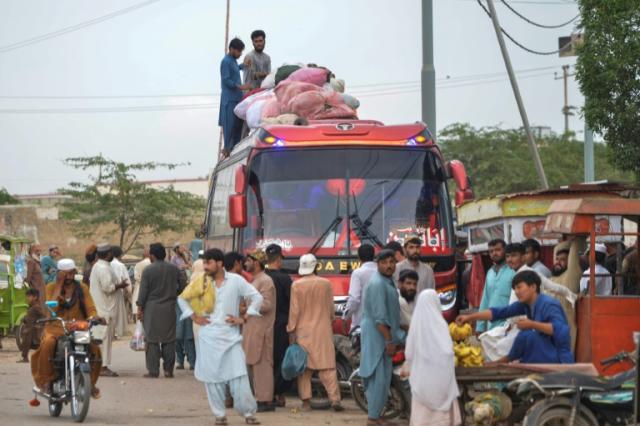ISLAMABAD: Thousands of Afghans have crossed back into their homeland from Pakistan in recent days, according to the United Nations and Taliban officials, as Islamabad intensifies efforts to repatriate Afghan nationals residing within its borders.
“In the last two days, 8,025 undocumented individuals and ACC holders returned via Torkham and Spin Boldak crossings,” the UN’s International Organization for Migration (IOM) said Monday on social media platform X.
Taliban officials confirmed the exodus, though they reported slightly lower figures. Abdul Mutalib Haqqani, a spokesperson for Afghanistan’s refugee ministry, said that between 6,000 and 7,000 Afghans had returned since April began. He warned that the pace may increase after Eid festivities marking the end of Ramadan.
“We urge Pakistani authorities not to carry out forced deportations,” Haqqani said. “There should be a structured mechanism and mutual agreement between both countries to ensure returns happen with dignity.”
Pakistan recently set an early April deadline for roughly 800,000 Afghans holding Afghan Citizen Cards (ACC) to leave the country, marking another phase in its ongoing push to reduce the Afghan refugee population. The ACC holders, while registered, are not formally recognized as refugees under international law.
Scenes reminiscent of the 2023 deportation wave have resurfaced, with Afghan families—many carrying their possessions—lining up at key crossings like Torkham in the north and Spin Boldak in the south.
The United Nations estimates that nearly three million Afghans are currently living in Pakistan—many having sought refuge during decades of conflict and, more recently, following the Taliban’s return to power in 2021.
Relations between the two neighbors have deteriorated since the Taliban takeover, with Islamabad accusing the Afghan government of harboring militants involved in attacks inside Pakistan—an allegation Kabul strongly denies.










